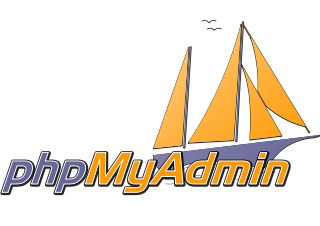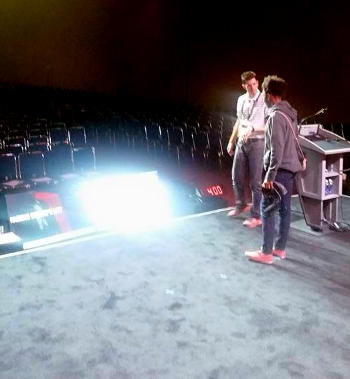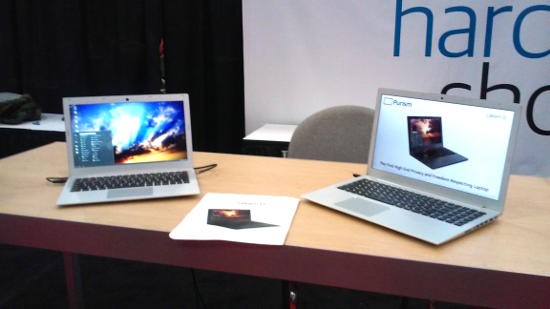 I have been using LibreOffice since it was called Star Office and all documents opened in a tabbed interface, as in most modern spreadsheet applications (anyone remember those days?). From those early days until now, I have considered Star Office/OpenOffice.org/LibreOffice to be an excellent, if not superior, tool compared to many on the market.
I have been using LibreOffice since it was called Star Office and all documents opened in a tabbed interface, as in most modern spreadsheet applications (anyone remember those days?). From those early days until now, I have considered Star Office/OpenOffice.org/LibreOffice to be an excellent, if not superior, tool compared to many on the market.
FOSS Force
It always happens to someone else. Right? I mean, what are the chances it will happen to me? Or you? Be it winning the lottery or developing a debilitating disease. We all know someone who knows someone who…well, you know how it goes. It will happen to someone else.
And it did, two days ago. Across the street from me.
 Claude and Jane are good folks. Both in their mid 70s. They live on their combined retirement funds and spend their time keeping busy with kids, grandkids, and from what I hear, a great-grandchild in a matter of months. They come over for coffee or tea at times, and we always see them at community center events. They are not well off by any standard, but they do okay…until last Saturday.
Claude and Jane are good folks. Both in their mid 70s. They live on their combined retirement funds and spend their time keeping busy with kids, grandkids, and from what I hear, a great-grandchild in a matter of months. They come over for coffee or tea at times, and we always see them at community center events. They are not well off by any standard, but they do okay…until last Saturday.
phpMyAdmin, the popular free and open source web based tool for administering MySQL databases, has left the SourceForge building.
In a blog post on Saturday, the project’s infrastructure coordinator, Michal Čihař, announced that a migration from Sourceforge is all but complete. The few remaining items left on the SourceForge server will be “hopefully handled in upcoming days as well.”
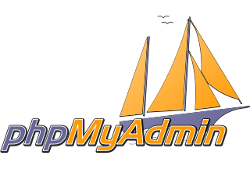 A popular web based application for administering MySQL databases, phpMyAdmin is the preferred tool of many webmasters for working with MySQL when used to power websites and is installed by default with most web hosting packages. The app can be used to perform a variety of tasks, including creating, modifying or deleting databases, tables, fields or rows; executing SQL statements; and managing users and permissions.
A popular web based application for administering MySQL databases, phpMyAdmin is the preferred tool of many webmasters for working with MySQL when used to power websites and is installed by default with most web hosting packages. The app can be used to perform a variety of tasks, including creating, modifying or deleting databases, tables, fields or rows; executing SQL statements; and managing users and permissions.
 OSCON wraps up, as it always does, with its closing remarks, a short talk — this year by Simon Wardley on “Situation normal, everything must change” — and the annually awaited O’Reilly Open Source Awards, which had five winners this year.
OSCON wraps up, as it always does, with its closing remarks, a short talk — this year by Simon Wardley on “Situation normal, everything must change” — and the annually awaited O’Reilly Open Source Awards, which had five winners this year.
The five are…and because no one else will say it, I will:
The OSCON goes to…
On the last morning of the last day of the last OSCON in Portland, things seem remarkably upbeat. Though resigned to the fact that they’re losing the home-field advantage for having the largest FOSS expo in North America, many Portlanders still feel that OSCON will be back someday. Officially, O’Reilly is focused laser-like on the Austin event in May 2016 — among the increasing number of O’Reilly events here in North America and elsewhere — so 2017 is not even on the radar yet.
FOSS Week in Review
While Larry Cafiero is up in Portland having himself a merry auld time at OSCON, I’m in the sweltering heat and humidity of North Carolina, normal for this time of year, with dreams of All Things Open swirling through my head. ATO, because it’s the next conference I’ll be able to attend — and because it happens in October, when the weather around here is much more tolerable.
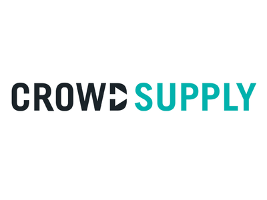 While Larry’s been keeping an eye on things at the self-proclaimed most-important-open-source-conference-in-the-multiverse, I’ve been keeping an eye on the happenings in the FOSS world elsewhere. In the process, I’ve managed to make Larry part of this Week in Review.
While Larry’s been keeping an eye on things at the self-proclaimed most-important-open-source-conference-in-the-multiverse, I’ve been keeping an eye on the happenings in the FOSS world elsewhere. In the process, I’ve managed to make Larry part of this Week in Review.
Your digital rights — do both your hardware and software respect them?
Because if they don’t, Purism might have the answer to this shortcoming.
At OSCON, Purism has on hand the Librem 13 and Librem 15 laptops – the numbers designating the screen size (13-inch and 15-inch, respectively) — which are both designed, chip-by-chip and line-by-line to respect your rights to privacy, security and freedom, which is Purism’s philosophy.
 “We developed Purism so that users can have access to the highest quality computers without compromising these beliefs,” the Purism website states. “The founder of Purism developed the Philosophical Contract, that we all abide by, which was adopted from the Free Software Foundation, and expanded to include hardware manufacturing as it relates to software.”
“We developed Purism so that users can have access to the highest quality computers without compromising these beliefs,” the Purism website states. “The founder of Purism developed the Philosophical Contract, that we all abide by, which was adopted from the Free Software Foundation, and expanded to include hardware manufacturing as it relates to software.”
PORTLAND, Ore. — My colleague Christine Hall beat me to the punch this morning about Capital One’s announcement on their open source development tool, but IBM and Hitachi also both made a big splash at OSCON today.
“Big Blue” unveiled a new platform for developers to collaborate with IBM on a newly released set of open source technologies. IBM plans to release 50 projects to the open source community to speed adoption in the enterprise sector and spur a new class of cloud innovations around mobile and analytics, among other areas.
 The project is called developerWorks Open, a cloud-based environment for developers to access emerging IBM technologies, technical expertise and collaborate with a global network to accelerate projects. Developers can download the code, but also access various items like blogs, videos, tools and techniques to accelerate their efforts.
The project is called developerWorks Open, a cloud-based environment for developers to access emerging IBM technologies, technical expertise and collaborate with a global network to accelerate projects. Developers can download the code, but also access various items like blogs, videos, tools and techniques to accelerate their efforts.
 Who would ever think that Capital One, the what’s-in-your-wallet folks, would want to get serious about becoming an open source software developer? After all, it’s a banking institution, and while it’s not hard to imagine a bank would be developing some back end tools to be used in-house or by its clients, it’s not expected that it would spend big bucks publicizing these tools at OSCON.
Who would ever think that Capital One, the what’s-in-your-wallet folks, would want to get serious about becoming an open source software developer? After all, it’s a banking institution, and while it’s not hard to imagine a bank would be developing some back end tools to be used in-house or by its clients, it’s not expected that it would spend big bucks publicizing these tools at OSCON.
Even more amazing: The application Cap One is unveiling with much fanfare isn’t something designed to help potential clients interact with the bank’s network, but is a developers’ tool. Called Hygieia, after the Greek goddess of health, it’s a dashboard that ties together data from a variety of tracking tools commonly used by software developers and presents them on a single screen.


